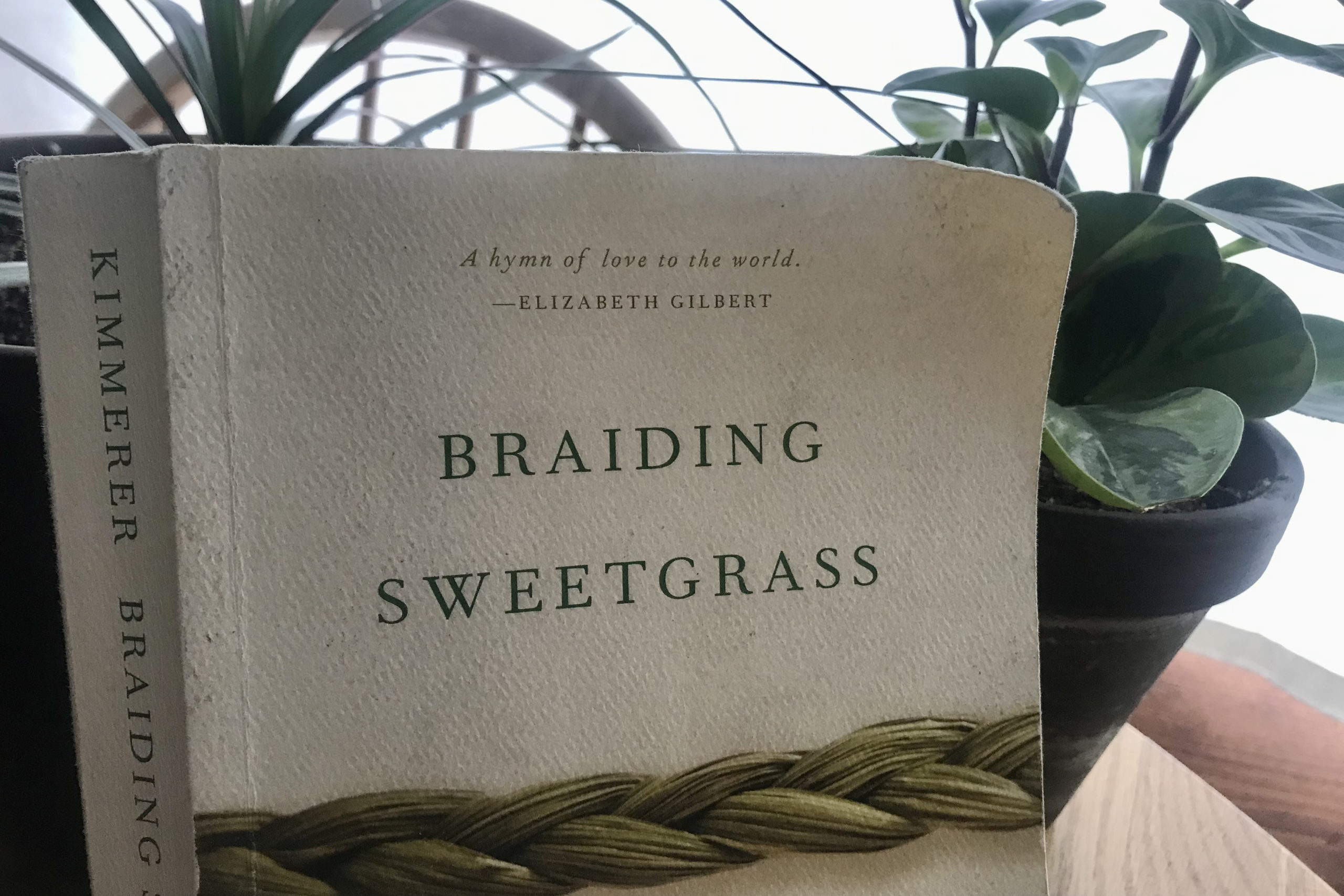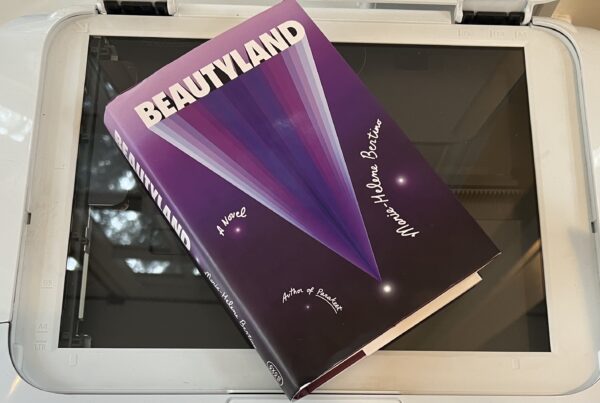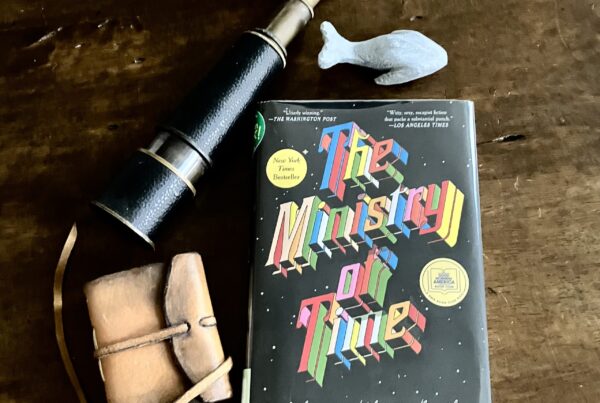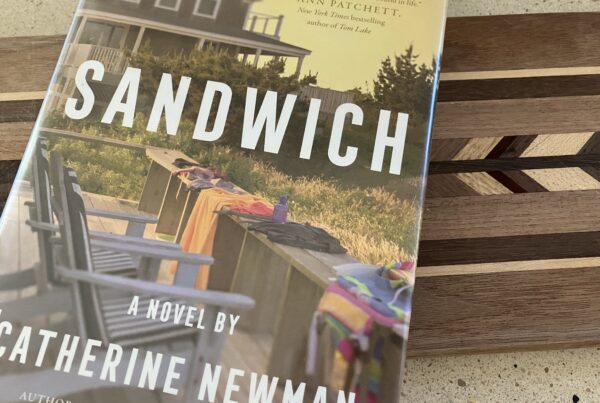A student swooped in to borrow my brand-new copy of Braiding Sweetgrass: Indigenous Wisdom, Scientific Knowledge and the Teachings of Plants by Robin Wall Kimmerer even before I’d had a chance to crack it open. She read it cover to cover for a project in our English class, and when it came back to me at the end of the year, it looked well-loved—a little dirty, the cover bent, the pages curled. I loved that she’d returned it that way, to be honest: her excitement over its contents was obvious.
In fact, it was her excitement that pushed Braiding Sweetgrass to the top of my TBR list for the summer. I can’t believe it took me so long to read this book, but I’m glad I read it during the time we’re living in now. Reading it while fires rage, heat bubbles blister, and UN reports tell us what we should already know about climate change was a soothing balm. I wish this book were required reading for everyone on the planet (and I’ll be using portions of it in my English classes this year).
For those of you less likely to pick up a non-fiction book or a book that is written by someone with a scientific background, I can promise you Kimmerer is a storyteller, and her writing is often stunning. I am not a scientifically-minded person, but she weaves in the scientific aspects of her explorations in a way that is accessible and fascinating. Even one of her more science-based chapters, “Umbilicaria: The Belly Button of the World,” treats its subject matter with such intimacy and care that words like “thallus” and “medulla layer” didn’t faze me. Rather, I was able to understand and appreciate lichens in a way I hadn’t before.
For those of you who are science-minded and perhaps skeptical of mixing storytelling and metaphor with science, Kimmerer—a botanist—does plenty to assuage your concerns. Though she is critical of some approaches in scientific communities, she believes wholeheartedly in the need to merge both science and Indigenous wisdom in order to heal the planet and ourselves.
I was moved to tears many times reading this book—the author’s love for nature and the Earth is profound and inspiring, and the way she writes is often poignant. A particularly touching chapter entitled “A Mother’s Work” charts Kimmerer’s efforts to clear a pond on her property of algae so her daughters can swim in it. In her efforts to be a “good mother”—to change the pond for her daughters—she also negatively impacts some of the surrounding fauna, leading her to the reflection, “I forgot to acknowledge that creating a home that I wanted for my children jeopardized the homemaking of other mothers whose intents were no different from mine.”
This is what Kimmerer challenges us to do: to pause and reflect on how to be in good relationship with the land we inhabit and how to care for ourselves and our loved ones in ways that allow for the growth and richness of the land and everything on it. The messages in this book are essential and urgent—it’s a roadmap back to ways of being and doing that could actually lead us to a better tomorrow.




